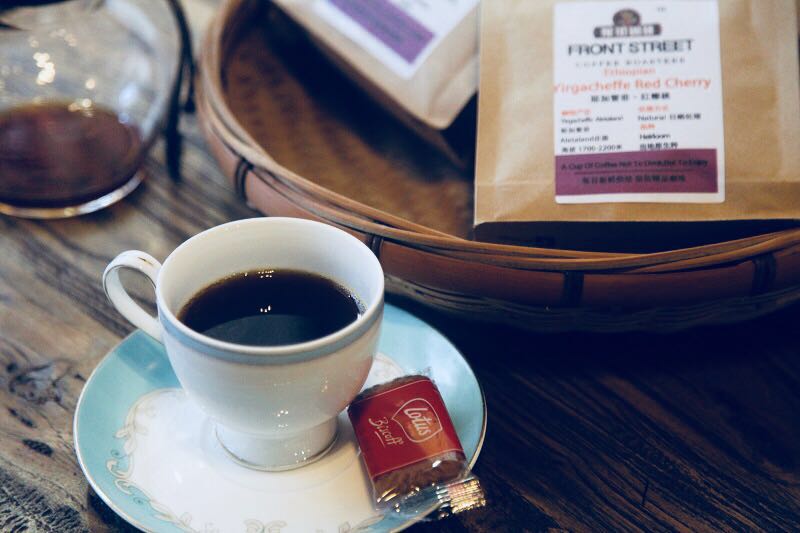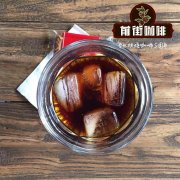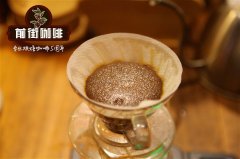Yemeni coffee flavor Yemeni coffee characteristics Yemeni boutique coffee

Professional coffee knowledge exchange more coffee bean information please follow the coffee workshop (Wechat official account cafe_style)
The mention of Yemeni coffee immediately reminds people of the magical sun-dried beans that taste thick and full, and the fantasy wild aromas of fermented tea are stacked in layers, as mysterious and elusive as the country in Yemen.
Yemen is located in Ethiopia across the Red Sea and East Africa in Asia, and is the highest quality producer of natural sunburn coffee. The coffee produced in Yemen is called mocha beans. In fact, Mocha is an export port of coffee. In the early days, sun beans including nearby East Africa were exported from the port of Mocha to all parts of the world, so the sun beans produced in Ethiopia, including Yemen and East Africa, are collectively called Moka beans.
The natural sun treatment of Yemeni coffee is to manually harvest fully mature coffee beans and directly place the newly harvested coffee beans in a special coffee drying yard or in their own compacted soil front yard to receive the sun. During the period of drying rice in Taiwan, you usually have to turn with a wooden rake to keep each bean evenly dried. After about 20 days of coffee drying, remove the outer pulp and peel from the coffee beans. Yemeni coffee is rich in flavor? Complicated? Wild? Mellow? With its strong fermented taste and low acidity, coupled with the uncertainty of Yemeni coffee (when it rains in the season), it is no exaggeration to call it the most special coffee in the world.
Yemeni coffee grows on steep land with little rainfall, poor land and insufficient sunshine. This unique and difficult condition is not conducive to coffee growth, but it has given birth to a Yemeni mocha that can not be replaced by the coffee world. The main coffee producing area is Sanani? Matari? Yishi Mary (Ismaili).
There are many empty shell beans in the Yemeni mocha raw beans with different sizes and colors, which is the characteristic of the Yemeni mocha and the reason for its uncertain fragrance.
Yemen is located in the Arabian Peninsula of the Asian continent, across the Red Sea and Africa, generally classified as African beans. When it comes to Yemen, what most people think of directly is Mocha! As a matter of fact, Mocha is a port in Yemen. in the past, almost all the attached coffee was exported from the port of Mocha, and all mocha became synonymous with coffee and has been in use ever since. In fact, the port of Mocha disappeared long ago because of blockage! But because of traditional habits, coffee beans from many other countries (such as dried Ethiopian beans) are still marked with mocha. There are many spellings of the word mocha, such as Moka, Mocha, Mocca, etc., but Mokha is closest to the original Arabic. There are several famous producing areas in Yemen, such as San'ani, Mattari, Hirazi, Rimy, and Dhamari. These areas produce many high-quality sun beans. Because of the sun treatment, the size of coffee beans is often different, sometimes mixed with corn and other cereals. Also because it is sun beans, so the taste with the feeling of the sun and wild flavor. Generally speaking, Yemeni coffee has a unique character, wild, complex and exciting, especially the charming sour wine and deep dark chocolate taste that many people like, but some people think that Yemeni coffee beans are bitter. Anyway, this is the unique Yemeni coffee bean.
Qianjie Coffee also has such a unique Yemeni coffee, Yemeni mocha Matali. With 89 degrees water to cook, the entrance is a strong dark chocolate flavor, slowly round grape acid emerged, the rich layers are very surprising.
Qianjie coffee: Guangzhou bakery, the store is small but a variety of beans, you can find a variety of unknown beans, but also provide online store services. Https://shop104210103.taobao.com
Important Notice :
前街咖啡 FrontStreet Coffee has moved to new addredd:
FrontStreet Coffee Address: 315,Donghua East Road,GuangZhou
Tel:020 38364473
- Prev

What's the flavor of Yemeni coffee? How do you drink Yemeni coffee? What are the famous coffee beans in Yemen?
Professional coffee knowledge exchange more coffee bean information please follow the coffee workshop (Wechat official account cafe_style) coffee bean application, originated in Ethiopia, the history is difficult to trace. As for the records of coffee drinks made by human beings, it will be in Yemen in the 15th century. Local Sufi Muslims (Sufi Muslim) drink coffee at religious ceremonies to promote their denomination
- Next

How to drink Yemeni mocha coffee beans? Yemeni coffee flavor characteristics of Yemeni boutique coffee beans
Professional coffee knowledge exchange more coffee bean information Please follow the coffee workshop (Wechat official account cafe_style) Yemen, famous for its frankincense or spice trade, is the origin of the earliest coffee mocha in the world. If you follow before, this is also the place where Noah built the ark in the Bible. Legend has it that 3000 years ago, they went to Jerusalem to look for gold, spices and large-scale envoys.
Related
- Detailed explanation of Jadeite planting Land in Panamanian Jadeite Manor introduction to the grading system of Jadeite competitive bidding, Red bid, Green bid and Rose Summer
- Story of Coffee planting in Brenka region of Costa Rica Stonehenge Manor anaerobic heavy honey treatment of flavor mouth
- What's on the barrel of Blue Mountain Coffee beans?
- Can American coffee also pull flowers? How to use hot American style to pull out a good-looking pattern?
- Can you make a cold extract with coffee beans? What is the right proportion for cold-extracted coffee formula?
- Indonesian PWN Gold Mandrine Coffee Origin Features Flavor How to Chong? Mandolin coffee is American.
- A brief introduction to the flavor characteristics of Brazilian yellow bourbon coffee beans
- What is the effect of different water quality on the flavor of cold-extracted coffee? What kind of water is best for brewing coffee?
- Why do you think of Rose Summer whenever you mention Panamanian coffee?
- Introduction to the characteristics of authentic blue mountain coffee bean producing areas? What is the CIB Coffee Authority in Jamaica?

